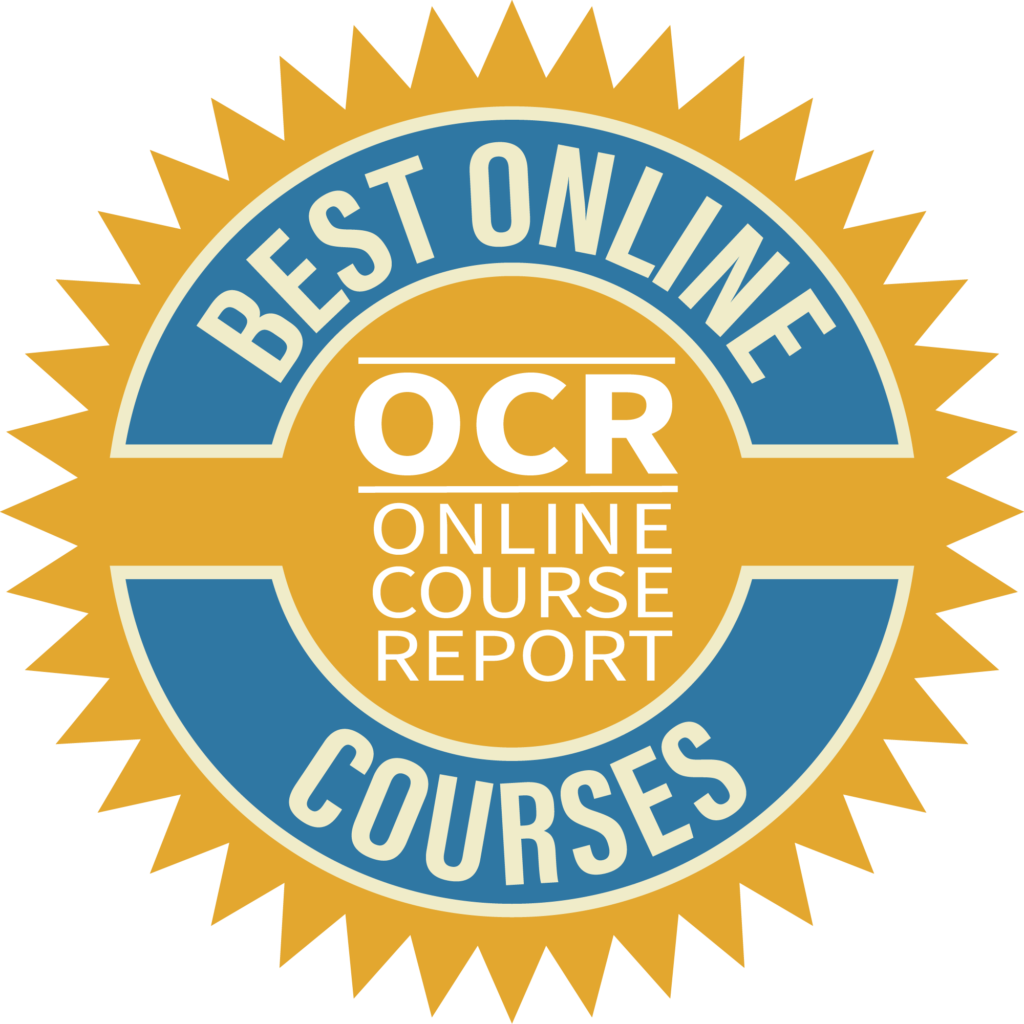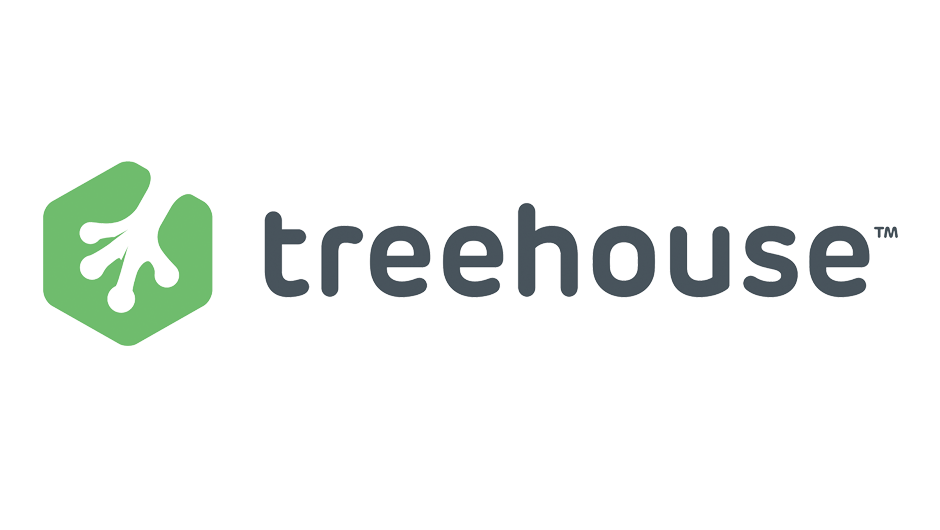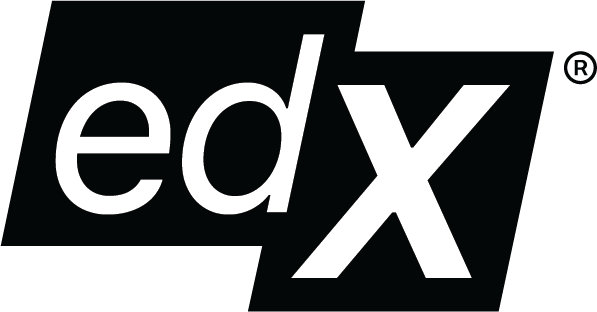
Whether Android app development or iOS app development is your specialty, there are many online courses you can take to advance your knowledge. You can learn virtually any skills you need to become a good developer.
Of course, some classes are better than others.
This list of the best online courses for app development outlines 10 top classes you might consider. Each course listed here will help you get the training you need to advance your education and your career.
Featured Program
- Build Your Very First iOS App
- Multiplatform Mobile App Development with Native Script
- Building iOS Apps with AWS Mobile
Disclaimer: Some courses may include an affiliate link. Courses were chosen first based on the methodology with affiliate links only added after the ranking was complete.
Some of these courses are free. Others have fees. Some require a significant time commitment. Others can be completed in just a few hours. Some are for beginners while others offer advanced learning.
Let’s first examine the methodology for ranking these mobile app development courses and then explore ten of the top courses available today.
Methodology to Determine the Best Online Courses for App Development
As noted earlier, there are many choices for online courses for app development. With so many options, choosing the best one for you can be hard.
That’s where our rankings come in.
To determine the best app development courses, we ranked them according to:
- Affordability
- Flexibility
- Course Ratings
- Learning Level
Affordability is the main factor in our rankings. There are many great free app development courses for people of all skill levels. But there are many more that have a fee. Deciding which of these courses is best is an important step in picking which course is right for you.
Flexibility is the next criteria. It’s included in our rankings because not everyone can learn on a fixed schedule. With demands of work and life, most online learners value being able to learn at their own pace. For some, convenience is the primary factor in selecting a class. Because of this, the more flexible a program is, the higher the ranking.
Student ratings for online courses are a helpful measure of the quality of those courses. The more students that find a class worthwhile, the higher the ranking and the more likely you are to find the course valuable to you.
Lastly, when trying to improve your mobile application development skills, you need to find courses that fit your learning level. Likewise, you need to examine the breadth and depth of the knowledge you might gain. The more advanced the course, the more points it earns in our rankings.
Below are descriptions of how each of these criteria are weighed for our rankings. Note that each feature carries different weight. For example, since affordability is the primary criteria people are concerned with, it is worth a higher possible point total than the other factors.
Affordability
As mentioned above, the affordability of an online course is often the most important factor when students select classes to take.
Some of the courses in our rankings won’t cost you a dime. Others are quite expensive. Most fall somewhere in between.
But it’s necessary to consider affordability along with the other criteria in our rankings. That is, don’t just choose a course to take because it’s free or cheap. Instead, look at all the factors in our rankings. This is important because there might be a slightly more expensive course that offers a greater level of learning or better flexibility for you.
This criterion is scored as follows:
- Free: 6 points
- Under $15: 5 points
- $16-$25: 4 points
- $26-$35: 3 points
- $36-$45: 2 points
- Over $45: 1 point
Flexibility
Ranking the best online courses for app development also includes a review of how much flexibility a course offers students.
How long does a course take? Can you learn at your own pace? Are there options for extending learning further? Can students take accelerated pathways to complete their learning faster?
These are just a few examples of questions we’ve considered as we developed these rankings.
This criterion is scored as follows:
- High flexibility: 2 points
- Moderate flexibility: 1 point
- Low flexibility: 0 points
Course Ratings
Though course ratings aren’t the end-all, be-all in terms of evaluating the value of a course, they are nonetheless informative.
After all, if student after student is leaving glowing reviews of their mobile application development training and certifications, then the chances are good that the course in question might be worthwhile. On the other hand, if a course has awful ratings, you should proceed with caution.
While many online app development classes have ratings, some do not. In such cases, we can’t assign points. However, just because there are no ratings for a course does not mean it is a poor choice. Again, you need to consider all the criteria for the overall rankings when making your decision.
This criterion is scored as follows:
- 5 stars: 5 points
- 4.5+ stars: 4 points
- 4+ stars: 3 points
- 3.5+ stars: 2 points
- 3.4 stars and below: 1 point
- No ratings: 0 points
Learning Level
When looking for android app development and iOS app development courses to take, consideration must be given to the level of learning the course provides. If you’re an advanced developer, you don’t need to take a beginner course!
And while many beginner courses offer as much value as advanced courses, the breadth and depth of learning are typically greater the more advanced a class is. As a result, we assign higher point values to more advanced classes.
This criterion is scored as follows:
- Advanced: 3 points
- Intermediate: 2 points
- Beginner: 1 point
Ranking the Best Online Courses for App Development
#10: Build a Simple Android App with Kotlin

This beginner course introduces you to the basics of Android App development. You will learn the essential concepts of developing an app. This includes getting an introduction to Android Studio and the Android Software Development Kit.
Throughout this class, you will build a simple app. This activity will help you put what you’re learning to the test.
Some of the learning targets you can expect to meet in this class include:
- How to create screen layouts
- How to refactor code
- How to test and debug an app
- How to utilize Android tools for app development
This online app development course is just over three hours in length and can be completed at your own pace through Treehouse. Though the course is quite short, it is packed with useful knowledge for absolute beginners.
Points: 7
Affordability: Free trial (scored as a paid plan, though). After the free trial, you have to sign up for a monthly plan, which starts at $25/month.
Flexibility: High. You can learn at your own pace, and depending on the plan you have, you can download content for offline learning.
Course Rating: None
Learning Level: Beginner
#9: Build your very first iOS app
Are you interested in creating an iOS app from scratch? Thousands of people have used this course to get started!

You will be introduced to Xcode and Interface Builder and Development. You do not need to know any programming language before taking this course.
Learning targets for this free online app development course include:
- Create your own iOS app
- Understand Swift programming language
- Use Apple developer tools: including Xcode, Interface Builder, Documentation Browser
This class is entirely online and is offered for free by CurtinX in conjunction with EdX. If you wish to get a verified certificate at the course’s end, you must pay a $149 fee.
Points: 8
Affordability: Free (add a verified certificate for $149 USD).
Flexibility: Moderate. The course is instructor-paced, with 8-10 hours of work required each week for eight weeks.
Course Rating: None
Learning Level: Introduction
#8 Build Your First iOS App in Swift – iOS Development Fundamentals

This app development course for beginners gives you a look at the basics of iOS app development.
The course is presented in short video segments. These videos explore how to code using multiple technologies, including Xcode 9, Swift 4, and MacOS. Videos demonstrate how to code, allowing you to follow along and code right along with the instructor.
Using what you learn throughout this class, you will complete a capstone exercise. This exercise involves creating your very own app.
You can expect to learn about the following topics:
- Subclassing UITableViewCells
- Creating UI elements
- How to pass data between view controllers
- Protocols and delegation
- AutoLayout
This fundamentals course is free and includes 21 lessons and is available on Skillshare. All told, there are about 3.5 hours of instruction, which you can complete at your own pace. The course instructor, Zeph Cohen, is an experienced app developer and iOS engineer.
Points: 9
Affordability: Free (at the time of this writing).
Flexibility: High. You can learn at your own pace and you have lifetime access to the course.
Course Rating: None. Though at the time of this writing, there is one review that describes this course as having clarity of instruction, helpful examples, and an engaging teacher.
Learning Level: Beginner
#7: Multiplatform Mobile App Development with NativeScript

The focus of this intermediate-level course is on using NativeScript to develop iOS and Android apps.
The course emphasizes the need to develop cross-platform apps with native UI and superior performance. This is done by learning how to use Angular, JavaScript, Typescript, and other programs to code the app.
Because this is an intermediate course, you should already be proficient in using Angular and Bootstrap 4.
By the online app development course’s end, you will have the skills needed to:
- Build a mobile app
- Target multiple platforms using a single codebase
- Acquire advanced skills in Javascript and other programming languages
Offered by Coursera, this mobile app development course is one hundred percent online and can be completed in approximately four weeks. However, you can learn at your own pace and complete the course in a shorter or longer time period, as needed.
Points: 9
Affordability: Free trial (scored as a paid plan, though). Course fees (usually around $50) apply after the free trial period. Additional costs are associated with taking the class as part of a specialization, which requires a subscription. Learn more about Coursera pricing.
Flexibility: High. You can learn at your own pace and the course is relatively short, with around 24 hours of classwork to complete.
Course Rating: 4.5 out of 5 stars (based on 130 ratings)
Learning Level: Intermediate
#6: Associate Android Developer

This mobile app development course focuses on Android apps. It includes a range of lessons at the beginner level. There are many intermediate and advanced lessons too.
In this course, you learn how to master common Android development tasks such as:
- Developing apps
- Using Android development tools
- Doing tests on apps
- Improving the user experience with the app
Furthermore, advanced lessons in this course introduce you to managing app data and how to market your app for broader appeal.
The end of this free app development class includes a performance-based exam. This combination of coursework and an exam helps prepare you for becoming a certified developer. More specifically, you’ll be prepared to take Google’s Associate Android Developer Certification exam.
You can enroll in this course for free on Pluralsight by clicking the link below:
Points: 9
Affordability: Free trial (scored as a paid plan, though). Course fees start at $24/month. Learn more about Pluralsight pricing.
Flexibility: High. You can learn at your own pace. There are easy-to-access learning tools that enhance the learning experience as well.
Course Rating: None
Learning Level: Beginner to advanced (scored as advanced).
#5: Building iOS Apps With AWS Mobile

This iOS app development course focuses on using Amazon Web Services (AWS) to build your app. The advantage of using AWS is that you don’t have to rely on server-side development.
This course is project-based, so you learn skills and apply them step-by-step throughout the class. The learning level is intermediate, so having some experience with iOS app development is necessary.
Instruction in this online app development course covers many topics, including:
- User authentication
- File storage
- How to create an Xcode project
- How to write Swift code
This class offered by LinkedIn Learning (formerly Lynda) and is broken into four modules, each of which has multiple short lessons. Lessons are easy to follow because transcripts of each one are provided. You also get access to offline resources and exercise files.
Points: 10
Affordability: Free trial (scored as a paid plan, though). Try a free trial for Linkedin Learning. After the first month, you must either pay $29.99/month or pay for an annual membership (at a rate of $19.99/month).
Flexibility: High. Each lesson is very short and you can learn at your leisure. Offline assets are also provided.
Course Rating: None
Learning Level: Intermediate
#4: Developing Android Apps

Intermediate learners that wish to expand their skills in Android app development might consider this course.
This is the first course in a sequence of classes from Udacity. You’ll learn app development theory. You will also get plenty of practice in building successful apps.
The focus of learning is on building a cloud-connected Android app. Instructors help you do so by teaching you how to:
- Thread and make requests without the app slowing down
- Convert data lists into visual UI elements
- Differentiate between implicit and explicit intents
- Add preferences
This Android app development course is taught by a team of professionals, so you get plenty of step-by-step instructions from the experts. The free online course is quite long at 60 hours, but it’s self-paced and free, so you can take your time. Get more details on this course from Udacity by clicking the link below.
Points: 10
Affordability: Free (at the time of this writing).
Flexibility: High. You get free access to the course and can work as quickly or as slowly as needed.
Course Rating: None
Learning Level: Intermediate
#3: Machine Learning for Apps

Rather than focusing solely on iOS app development, this class covers the basics of machine learning. More specifically, you’ll learn how to use Python to enhance an iOS app.
Python can be used to build a classification model in Python that is able to make predictions. These predictions are generated by neural networks. To train the network, you’ll use a provided data set.
The neural network you create will be trained to classify handwriting samples. The app will then be able to classify handwritten letters that are drawn on the screen.
You will also learn how to:
- Install and use Anaconda
- Create variables in Python
- Train a classifier
- Create a core ML model
This is an free introductory course from Alison that prepares you for taking higher-level courses in machine learning. There are 5-6 hours of coursework involved. There is a certification available as well.
Points: 14
Affordability: Free (at the time of this writing).
Flexibility: High. Course materials are available on multiple devices and offline. You also get full lifetime access, so you can work as slowly as you like.
Course Rating: 5 out of 5 stars
Learning Level: Beginner
#2: Android O & Java – The Complete Android Development Bootcamp

This course will take you from an absolute beginner to an advanced Android app developer. It includes dozens of hours of video tutorials. These tutorials walk you through making working apps of your own.
You’ll primarily learn how to use Java to build your apps. This includes building object-oriented programming, in which you develop an understanding of how to implement type systems, variables, functions, and methods.
This class will also help you build skills related to:
- Control structures, such as using switch statements
- Data structures, such as how to work with arrays
- Software design, such as how to utilize the Model View Controller (MVC) pattern
- Networking, such as how to store data in the cloud for later retrieval
You’ll also benefit from learning from expert instructors who deliver a curriculum that has been years in the making. You can access the course, which is offered by Udemy, on your mobile device or your TV. There are 18 downloadable resources, 61 articles, and more than 20 hours of on-demand video.
Points: 14
Affordability: $11.39 (at the time of this writing). Typically, a much higher app development course fee applies.
Flexibility: High. This course is structured so you can complete modules in short order at your own pace.
Course Rating: 4.5 out of 5 stars (based on 5,969 ratings)
Learning Level: Beginner to advanced (scored as advanced).
#1: iOS 13 Swift 5 – The Complete iOS App Development Bootcamp

This introductory iOS app development course is one of the top-rated courses on Udemy.
All told, you’ll get access to more than 50 hours of classes. This includes learning how to code using Swift 5.1. You will also learn how to develop apps for iPhone, iPad, and even MacOS.
This online app development course takes you step-by-step through programming using iOS 13 and Xcode 11. You’ll be introduced to app interface design, learn how to develop apps for augmented reality, and learn how to develop control structures and data structures.
Additional benefits of this course include:
- Learn how to market the apps you develop
- Gain skills to wireframe and mockup app ideas
- Access nearly 60 hours of HD video tutorials
- Access 114 articles and 11 downloadable resources
Once you complete the course, you get a certificate from Udemy. You also get lifetime access to course materials. By the course’s end, you will have a portfolio of more than two dozen apps to demonstrate the skills you’ve learned as well.
Points: 14
Affordability: $11.39 (at the time of this writing). Typically, a much higher app development course fee applies.
Flexibility: High. You can learn at your own pace and you have lifetime access to the course.
Course Rating: 4.7 out of 5 stars (based on 27,347 ratings)
Learning Level: Beginner to advanced (scored as advanced). This course is designed to help students with zero app development experience become experts.
Frequently Asked Questions
What should I do to develop mobile apps?
If you want to develop mobile apps, thinking about what courses are available to you is a good first step. Consult our rankings. Exploring these courses in more depth will help you find which ones are best for you.
Remember to look for courses that fit your criteria. We have developed a ranking method based mostly on affordability. Flexibility, learning level, and course ratings are important too. But there might be other criteria that are important to you.
For example, if you learn best by hearing, courses with video or audio-based teaching might be the best for you.
As another example, if you wish to get a degree in app development, finding classes that will count for college credit should be a priority.
In addition to identifying criteria for evaluating mobile app development courses, you also need to think about your skills. What are you good at? What do you still need to learn?
If you’ve got some experience in app development, you need to consider what additional learning you need for creating apps on your own. On the other hand, if you have no experience at all, the classes you need to take will be much different.
Here are some skills you should have if you want to be an app developer:
- Excellent skills in C++, HTML, Java, and other programming languages
- Understanding of database management
- Understanding of database security
- Knowledge of user interface design
- Excellent analytical and problem-solving skills
The skills you need depend on the type of app you want to develop. However, the above list is a good place to start.
Once you’ve evaluated your skill level and the courses that are available to you, consider what problem or issue you want to address with your app.
By identifying a problem, you can come up with an app idea. Once you have an app idea, you can begin to brainstorm what the app will look like. You can also figure out what features it will have.
From there, the development of the app begins. This includes coding the app as well as releasing beta versions for testing.
The final steps in developing an app are to release it on the app store and track users’ usage data. Tracking the number of downloads is key. Looking at user engagement with the app and collecting feedback will also help you improve the app for future releases.
Remember that apps are constantly changing. Using the information from analyzing user data, you’ll need to update the app and address any problems. Looking at user data might also help you determine what new features should be added to the app.
How long does it take to learn app development?
Learning app development doesn’t follow a set timeframe. If you have time, you can complete short online app development courses in a few hours. This requires a lot of commitment and self-discipline to accomplish.
Some Android app development and iOS app development courses require a huge amount of work. You might have to complete several hours of coursework a day. It just depends on your schedule. This type of daily learning commitment might be necessary for several weeks or months at a time.
These timelines refer to single courses. To finish an entire curriculum in app development could take much, much longer. But, since many courses are self-paced, you can take as little or as long as you need to finish.
Typically, a beginner-level course can be completed in a shorter period of time than an intermediate course. Likewise, intermediate courses usually take less time than advanced ones. This is because of the increasing complexity of the material as classes become more advanced.
So, when considering how long it takes to learn app development, there are many factors to consider. Short, beginner-level classes might take a few hours while an entire app development curriculum could take you weeks or months to complete.
Also understand that even if you finish your studies in app development, more learning will be required. Technology changes quickly, so app developers must learn new skills and update old ones.
Can I learn to develop an app without a degree?
Absolutely! You can learn how to build simple apps in a matter of hours. It takes more time to learn how to develop complex apps, but you can still do it without a degree.
There are many app development courses for beginners that require no knowledge or training, let alone a degree. You can take higher-level courses without a degree as well. This goes for courses that charge a fee as well as those that are free.
Learning app development in an online course is a great way to build skills that are needed to get a degree. Not all online mobile app development courses result in credits that will transfer to a college or university. However, the knowledge you gain will prove to be very valuable should you enroll in a degree program later on.
Of course, if you don’t want to get a degree in app development, you don’t have to. Many employers are more concerned with your skills and abilities as a developer than they are with where or how you got your education. In other words, if you are a skilled app developer, you can likely find employment, even without a degree.
What are some mobile application development careers?
Mobile application development is a popular career field. Fortunately, there are many different types of jobs available to you.
Each of the jobs described below requires different skills. They might also require different experience levels. However, if you get the right education and experience, any of these jobs could be within your reach.
The good news is that any of these careers offer great earning potential. In fact, each of the jobs listed below have potential salaries over $100,000 per year. Higher salaries come with more experience. If you’re just starting out, earning that much money might not be likely.
The salary you earn depends on many factors. This includes your skills and experience. But knowing that there is a large potential income is a huge bonus!
Here are a few job ideas you might consider with a background in mobile app development.
iOS Developer
As an iOS developer, you’re responsible for building apps for use on Apple devices.
The development process includes designing apps. You’re also responsible for coding the base application.
iOS developers also have to evaluate apps for problems and fix any bugs in the app. Much of this job is about maintaining the app code and developing and implementing updates.
Other tasks assigned to iOS developers include:
- Working with app designers to develop the user interface of the app.
- Evaluating the performance of the app.
- Putting the app on the App Store for sale to consumers.
- Designing application updates to make the app more usable.
- Implementing application updates to address bugs.
Android Developer
Like iOS app developers, Android developers are responsible for designing and creating apps.
Though they work within the Android system, Android app developers also must test apps. Zyhry examines the usability of apps as well. They must also analyze apps for problems or errors to improve app performance.
Additionally, Android developers are responsible for developing and adding new features. This makes the app more usable over the long-term.
Android developers are often asked to have the following skills:
- Understanding of app security.
- Ability to publish apps to the Google Play Store for sale to consumers.
- Experience developing communication-based apps.
- Solid problem-solving and analytical skills.
User Interface and User Experience Designer
A different career path for mobile app developers is to work as a user interface or user experience designer.
These designers focus on the user experience with the app. This includes designing how the app looks. It also includes what controls it has and making it easy to use. In other words, these designers have to make apps look good and function well at the same time.
As a user interface or user experience designer, it’s your job to research what users want in the app. You also coordinate with developers and engineers to create a final product that meets the users’ expectations.
User interface and user experience designers should possess:
- Strong graphic design skills.
- The ability to design user interface elements (i.e., menus, buttons, and navigation systems).
- Excellent problem-solving abilities.
- Solid oral and written communication skills.
- Top-notch collaboration skills.
Mobile App Developer
As a mobile app developer, you will primarily be responsible for developing the source code for apps. This source code must also be maintained to ensure proper app performance and security.
Additionally, mobile app developers implement the code to make mobile apps work. They are also tasked with designing app prototypes for testing purposes. Usually, mobile app developers need to be proficient in multiple programming languages.
If you want to be a mobile app developer, you should have the following skills and abilities:
- Proficiency in Java, C++, Python, and other programming languages.
- Ability to test and debug mobile applications.
- Ability to write native app code.
- Understanding of user interface and user experience design principles.
Can I take an app development course for free?
Of course!
Are you looking for Android app development courses? iOS app development courses? Something in between? Regardless, there are many free options.
You only need to look at the rankings above to see how many free app development courses are available. A full 80 percent of the list is either free or offers a free trial. If you need to learn mobile application development skills on a budget, there are virtually endless choices.
Just keep in mind that many “free” courses are only free for a certain period of time. Likewise, some free courses require you to pay a fee to access all of the materials for the course. In other words, some free courses limit how many resources you have available to you.
It’s also important to note that some courses that offer mobile application development training and certification require a fee for the certificate. For example, the DevOps for Mobile Apps course, which is ranked number 4 on our list, charges $99 for the certification.
Many free mobile app development courses are also part of a larger sequence of courses. In some cases, the sequence of courses has associated fees with some classes. Additionally, you might be able to take individual courses for free but have to pay for access to the complete curriculum.
These are just a few things to be aware of as you look for classes with the lowest app development course fees.
How much are app development course fees?
As noted above, there are many free courses you can take to learn app development skills. But many other courses have fees of some kind.
In some cases, a course might cost a flat fee. For example, the top-ranked course on our list – iOS 13 Swift 5, The Complete iOS App Development Bootcamp – will cost you $11.39. This is a sale price that represents significant savings over the normal price, which is $199.99.
However, you get lifetime access for that sale price, and the course includes a certificate when you complete the class. Though the class isn’t free, it still offers tremendous value.
Other courses are offered on platforms that charge recurring fees. For example, the Associate Android Developer course that’s ranked number 7 on our list is from PluralSight, which charges fees starting at $24 per month after the free trial period. Other providers charge even higher fees.
In the case of PluralSight, that monthly fee gets you access to the course you like. But you also get full access to their entire library of courses. Additionally, you get benefits like skills tests to help you identify your skill level. You can also develop custom learning paths by combining courses from different curriculums.
So, while $24 per month might seem like a high price for one course, you’re getting many more benefits.
The point is that fees associated with app development courses vary widely. You might pay a one-time fee or a recurring fee. Fees might be relatively small, or they can add up to large sums.
When choosing an app development course, be sure you read the fine print and fully understand how much a class is going to cost before you enroll.
OCR Staff
January 2020
More Rankings of Interest: